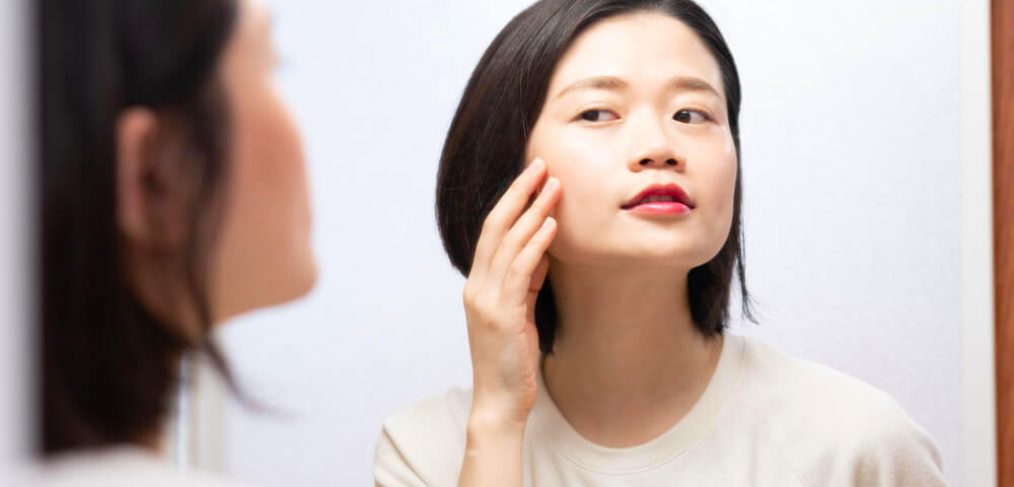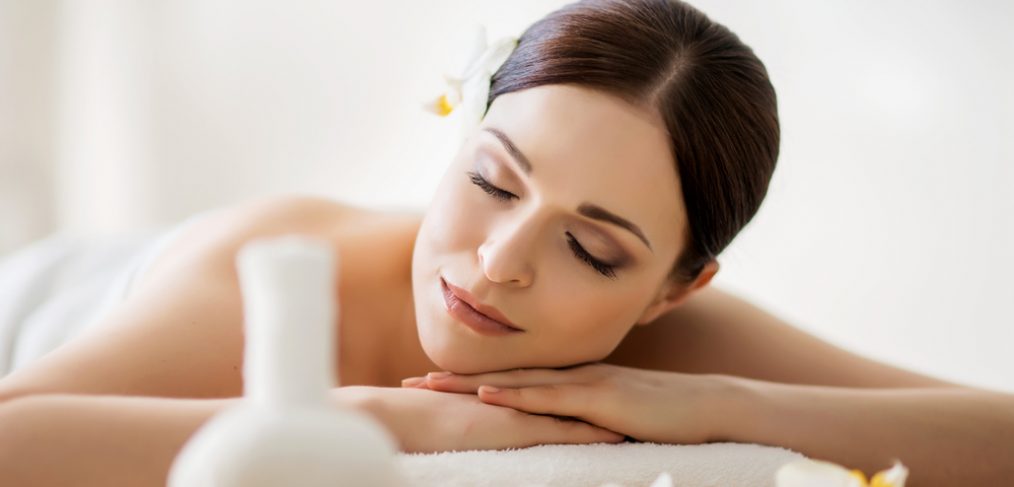There are only a handful of ingredients out there that are genuinely suitable for all skin types, and jojoba oil is one of these.
What makes this ingredient so great?
The fact that jojoba oil is biocompatible with the skin, meaning that the skin readily accepts it and puts it to good use.
What is Jojoba Oil?
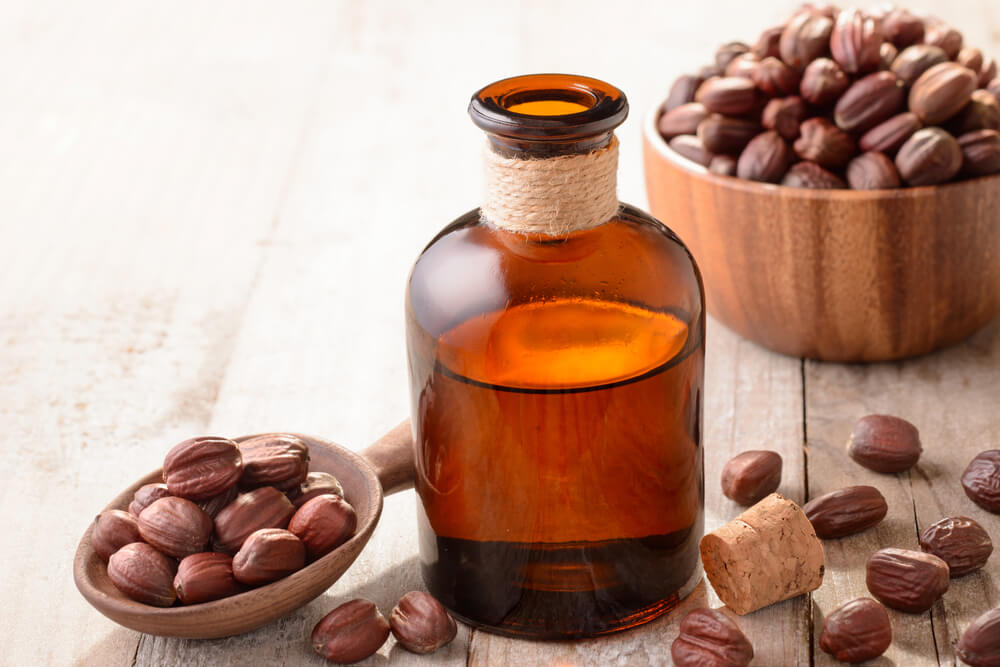
Jojoba oil is extracted from the seed of the jojoba plant – a shrub that is native to certain parts of southern USA and Mexico. Around 50% of the seed contains the oil, which looks like a thick golden liquid when it is pure, with a subtle nutty scent to it.
Although this liquid is referred to as an oil, it is technically a wax, making it even softer than a normal oil.
Unlike many of the other oils out there, from almond to safflower to squalene, jojoba oil is quite stable when it comes to resisting oxidation, making this a fantastic oil to incorporate into skin care products when you need them to have a longer shelf life.
Wondering what else the oil is used for?
Since the jojoba plant itself is quite slow and difficult to grow, jojoba oil is only really used for small-scale purposes.
Historically, it has been used by Native Americans to treat skin wounds and other similar conditions, and is now also currently being explored as an alternative sustainable fuel source.
The Biocompatibility of Jojoba Oil
So, what exactly does it mean when an ingredient is said to be biocompatible with the skin?
It basically means that the molecular structure of jojoba oil, along with the natural fats within it, are extremely similar to the oil that the skin naturally produces.
This means that, when jojoba oil is applied to the skin, the skin is tricked into thinking that this oil is actually its own sebum. This results in the skin absorbing much more of it, and at a much faster rate, than other ingredients.
Jojoba is the only plant out there that creates an oil that is so similar to the skin’s natural sebum, making this ingredient rather special.
If you have oily skin, you are probably thinking…
Why would I want to be putting even more oil on my skin?
The idea of applying oil to oily skin may seem counter-intuitive at first, but hold on….
When you apply the oil and trick your skin into thinking that the oil is its own sebum, this then causes the skin to cut back on the amount of actual sebum that it is producing.
Intrigued?
Keep reading…
A Fantastic Anti-Acne Ingredient
Oily skin is also usually prone to breakouts. This is due to the excess oil settling in within the pores and mixing together with dead skin cells, dirt and other impurities. This then forms a clog, blocking up the entrance to the pores and resulting in inflammation, which manifests as a breakout.
Well, as mentioned above, jojoba oil quickly helps to rebalance the amount of sebum that your skin produces, leaving your skin significantly less oily.
Worried that the jojoba oil itself will clog your pores up?
Jojoba oil is noncomedogenic, meaning that it is unlikely to lead to clogged pores on its own.
There are a few other ways in which jojoba oil can help to treat and prevent acne too:
- Antibacterial – the oil’s antibacterial qualities mean that it is able to destroy the acne-causing bacteria on the surface of the skin, preventing it from triggering a breakout. Don’t worry, research has shown that jojoba oil leaves all of the good bacteria alone, targeting just the bad ones instead
- Anti-inflammatory – jojoba oil contains anti-inflammatory properties that help to soothe irritated skin. Since acne is largely caused by inflammation, this goes a long way in preventing breakouts
- Cleansing – many people don’t realize that jojoba oil boasts cleansing properties too. It is able to dissolve away any sebum that has been deposited within the pores, clearing the pores out and preventing blockages. This is all down to the fact that it can penetrate so deeply into the skin’s layers, thanks to its biocompatibility
How do you cleanse with jojoba oil?
Good question! Lots of skin and body products are infused with jojoba oil to enhance the cleansing properties, so all that sebum and clogged pores can be effectively and gently removed.
Are soaps infused with jojoba oil effective?
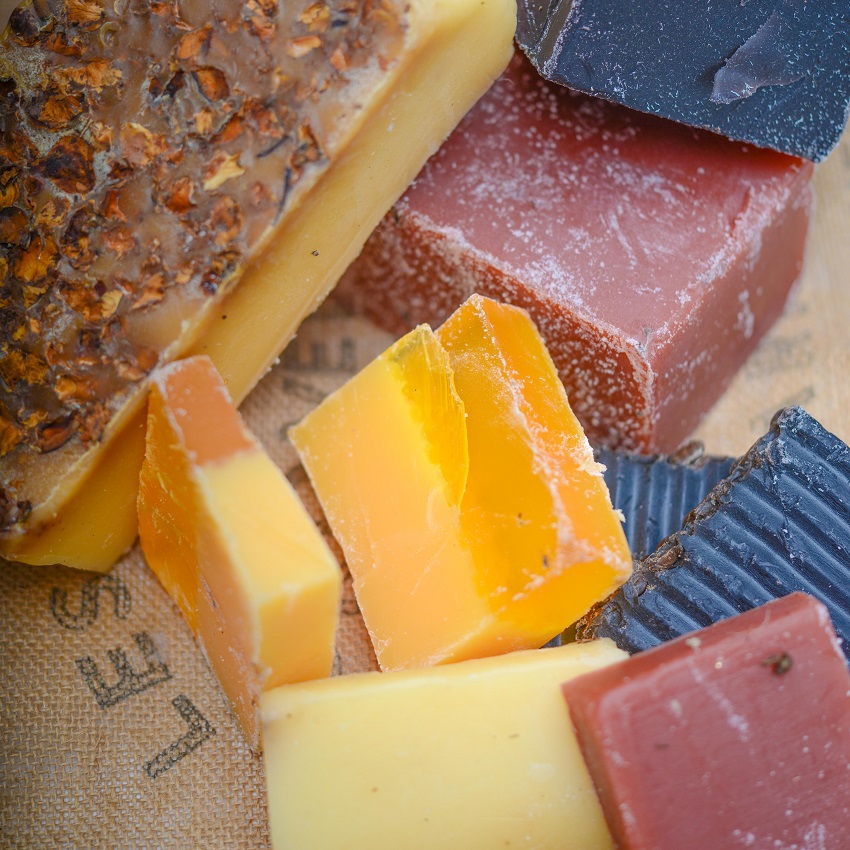
These are soaps used for the skin on the body, and can be highly effective as an anti-acne measure, especially if you struggle with body acne. Resveralife recommends the Coco N’ Oats Soap and the Hemp Soap if you are looking for a swift, effective cleanse.
An Effective Sunscreen
Moisturizers are designed to support the skin’s protective barrier, enabling it to do its job better.
What does the skin’s barrier actually do?
It has two main responsibilities:
- Keeping moisture in the skin by preventing it from evaporating
- Blocking dirt, impurities and more from entering into the skin
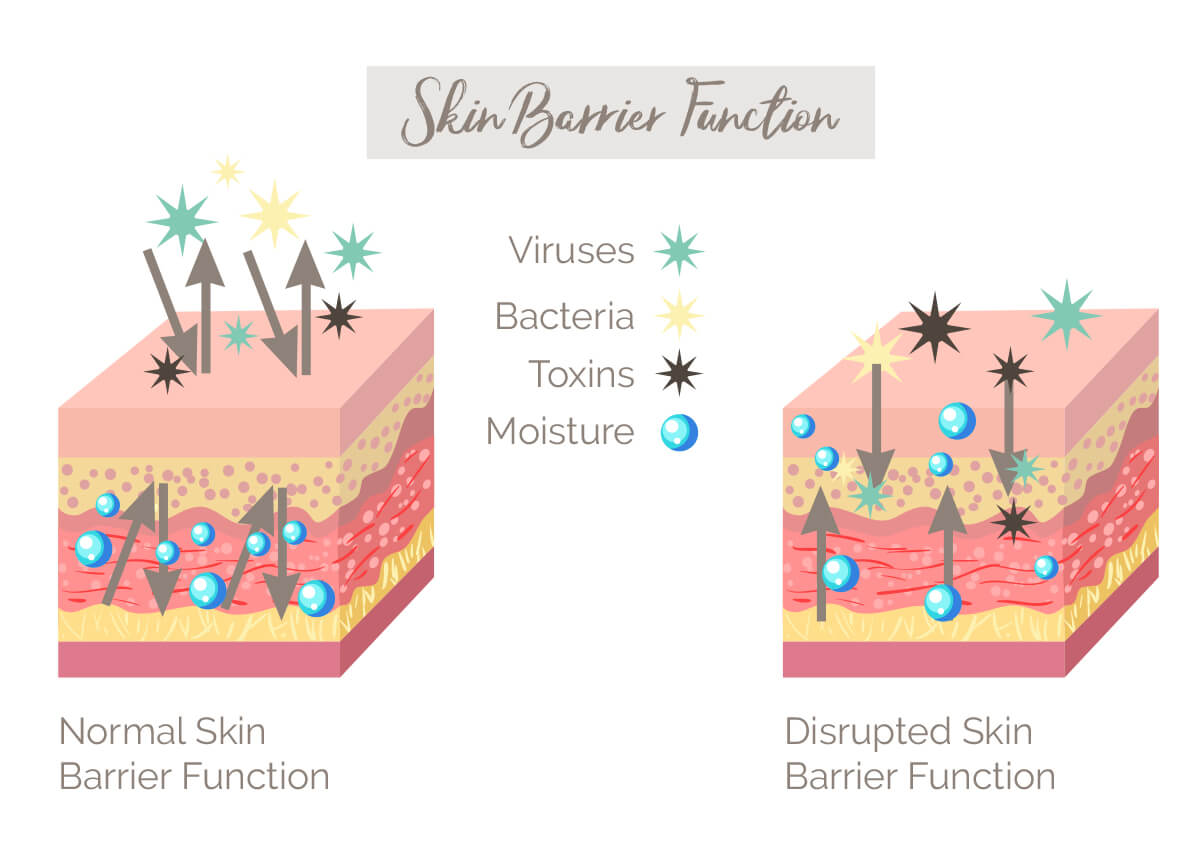
Wondering why you need a moisturizer if your skin already does that on its own?
Because your skin’s outer protective layer is quite fragile and susceptible to damage. There are so many different factors out there that cause harm to this layer, from sun exposure and wind to pollution and certain cosmetic ingredients.
This then means that this protective barrier will not function as well as it should, resulting in everything from dryness to breakouts to other blemishes.
How does jojoba oil help with all of this?
Due to the fact that it is a waxy oil, jojoba oil forms its own protective layer over the surface of the skin. This enables it to perform both of the roles mentioned above, therefore effectively moisturizing the skin.
Helps to Treat Inflammatory Skin Conditions
The way in which jojoba oil can help to treat acne has already discussed, but there are other inflammatory skin conditions that this oil can be used for too…
Eczema and psoriasis are perfect examples of this.
Both of these skin conditions produce dry, itchy and sensitive areas on the skin, with those patches being highly susceptible to infections.
How does jojoba oil help?
Well, the way in which it forms a protective moisturizing layer over the surface of the skin helps with both the dryness as well as with preventing infections.
The oil also boasts antibacterial and antifungal properties. This means that the oil destroys any harmful bacteria and fungus it comes across, keeping infections at bay.
The oil’s anti-inflammatory properties help to soothe irritated skin, reducing inflammation enough for the skin to start healing.
Those who suffer from eczema and psoriasis also commonly deal with open skin wounds.
Again, jojoba oil can help with this too…
It is highly effective at speeding up wound healing. Research shows that, when the oil is applied to a wound, the skin cells in that area bind together so much more effectively, enabling them to heal faster and better.
A Powerful Anti-Aging Ingredient
Looking for a new ingredient to add to your anti-aging arsenal?
Jojoba oil may be just the thing…
A powerful anti-aging ingredient needs to be a good source of antioxidants.
Why?
Because each and every day, free radicals are created in the body. These are unstable molecules that are formed due to everything from exposure to the sun or pollution to exposure to certain chemicals or cosmetic ingredients.
What do these free radicals do?
They attack the cells and tissues that surround them, causing serious cumulative damage that then ends up permanently harming the DNA within your cells. Free radicals are responsible for everything from accelerated wrinkles to dark spots and hyperpigmentation.
Wondering how you can stop free radicals from causing all of this damage?
With the use of antioxidants!
Antioxidants are pretty much the only thing that can neutralize free radicals. They turn them back into healthy molecules, where they can then function to support the skin, rather than attack it.
Jojoba oil contains quite a few different antioxidants, and in addition to neutralizing the free radicals in the body, they bring with them several other benefits too:
- Vitamin A – a powerful antioxidant that also stimulates skin cell turnover and provides the skin with a mild exfoliating effect. Vitamin A is one of the best anti-aging vitamins out there
- Vitamin E – known for its healing properties, vitamin E is extremely effective at keeping the skin moisturized
- Phenolic Compounds – protects the collagen and elastin in the skin, preventing them from being broken down
Speaking of collagen and elastin…
These two proteins are so important when it comes to the health and appearance of your skin. They are key components of your skin’s structure, giving your skin its firmness, smoothness and elasticity.
Both collagen and elastin are naturally produced by the skin, with the skin creating an abundance of this when it is young. However, as you progress through life, the amount of collagen and elastin that the skin produces decreases quite significantly. This is why fine lines, wrinkles and sagging skin are such common symptoms of aging.
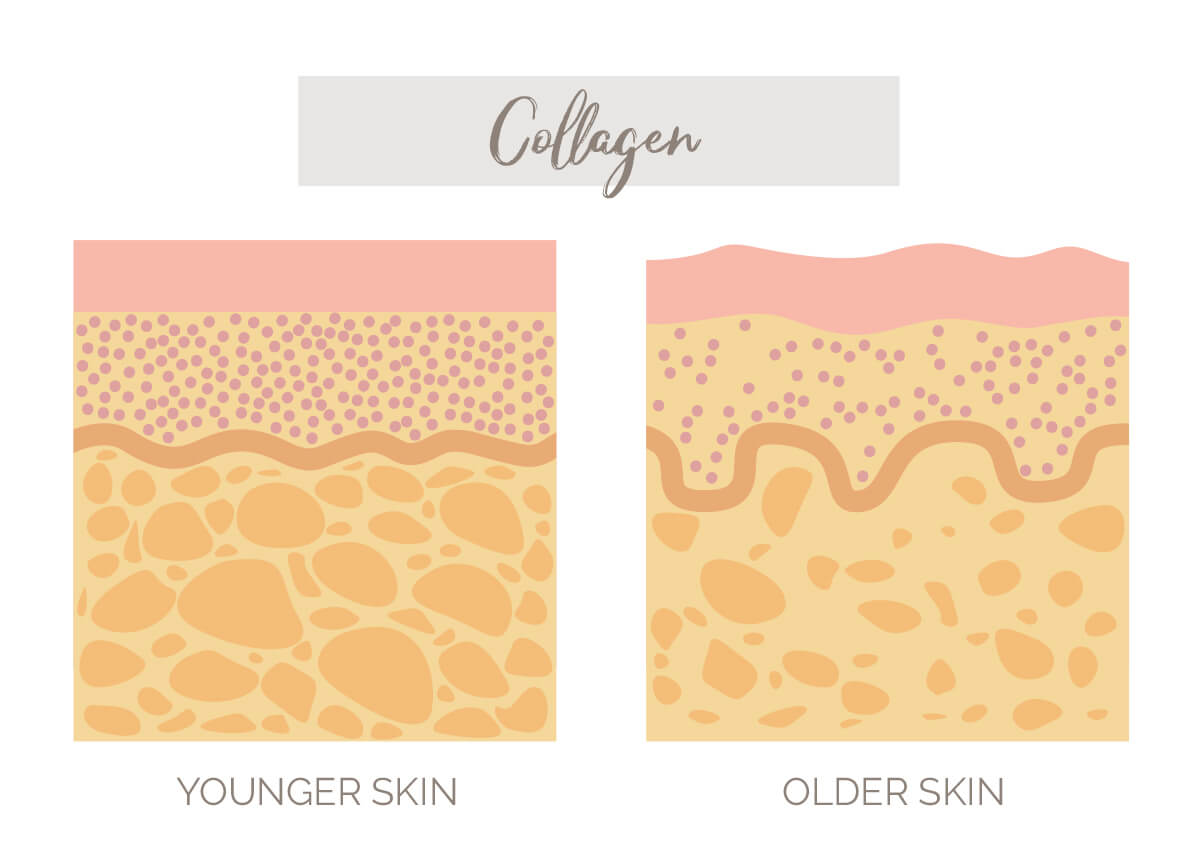
Free radicals damage the collagen and elastin in the skin, so by making use of the antioxidants within jojoba oil, you are already taking steps when it comes to protecting these vital proteins.
However, jojoba oil can help with your collagen and elastin in other ways too…
Thanks to its many powerful antioxidants, jojoba oil is able to stimulate the skin’s production of collagen and elastin, speeding this back up. This is one of the most effective ways to tackle the visible signs of aging, as there aren’t really any topical ingredients out there that can match the effects that your skin’s own collagen and elastin have.
Using Jojoba Oil on Your Skin
Convinced that your skin would be able to benefit from the powers of jojoba oil?
You have a few different options when it comes to using this ingredient…
The easiest way is by purchasing skin care products that already contain jojoba oil in their formulas.
Fortunately, there are several of these to choose from, ranging from serums to moisturizers to oils. All of these are quite effective, so long as they contain a high quality source of jojoba oil.
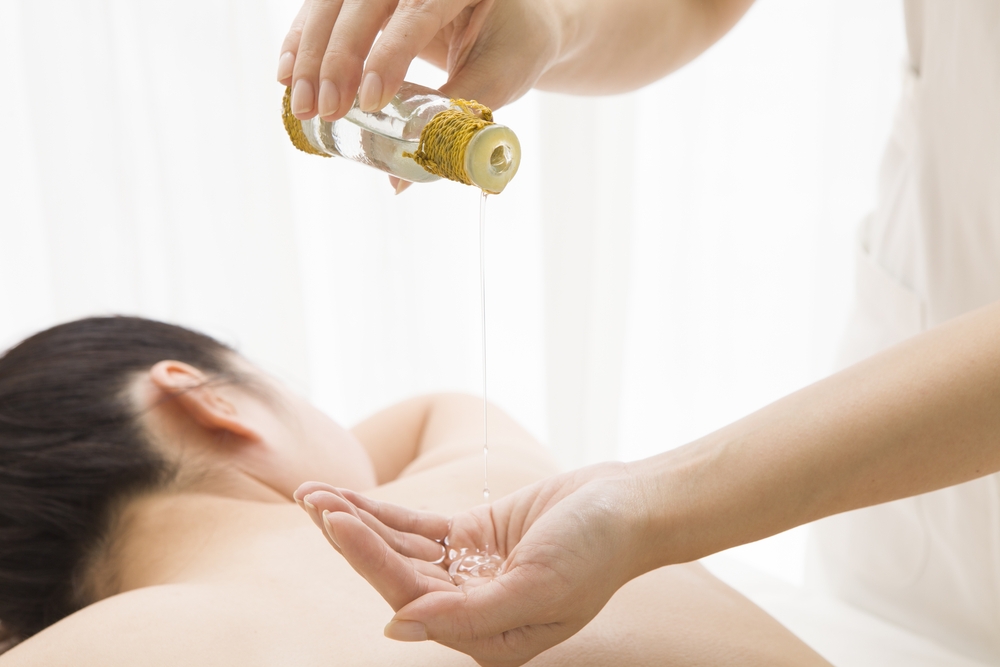
How do you know if the jojoba oil in a product is high quality?
Ideally, it should be cold-pressed. This means that it has been extracted with minimal use of heat, which then preserves all of the skin-boosting compounds within the oil. An organic oil would be even more beneficial, as this ensures that the oil contains the minimum amount of toxins.
Wondering if jojoba oil can be used pure on the skin?
Unlike many of the natural essential oils out there that cannot be used on the skin, it is safe for pure jojoba oil to be applied to the skin.
The oil can also be used as a carrier oil for other essential oils, meaning that you can dilute other pure oils with jojoba oil to create your own unique formula.
Does Jojoba Oil Have Any Side Effects?
Jojoba oil is a hypoallergenic ingredient, meaning that it is safe to be used topically by all skin types, with little chance of it causing a negative reaction. It is even safe to be used around the eyes, which is why this ingredient is so popular when it comes to oil-based eye makeup removers.
Of course, there are always exceptions, and the possible side effects you might experience from using jojoba oil on your skin are:
- Itching
- Redness
- Hives
Fortunately, these side effects are very rare, with most people able to use the ingredient without any problems at all.
However, if your skin is particularly sensitive with new ingredients, you would be best off performing a patch test first before using jojoba oil on your skin.
What is a patch test?
It simply requires you to apply a small amount of the product onto your inner arm, before waiting for 24 to 48 hours. If, after this time, there is no sign of any irritations or reactions, then that means that you are safe to continue using the product.
Jojoba oil really is such a universal ingredient, which sets it apart from many of the other ingredients that are commonly used in skin care. No matter your skin type or the skin concerns you may be dealing with, it is likely that jojoba oil would be able to benefit your skin in some way, making this an ingredient worth incorporating into your daily skin care routine.



